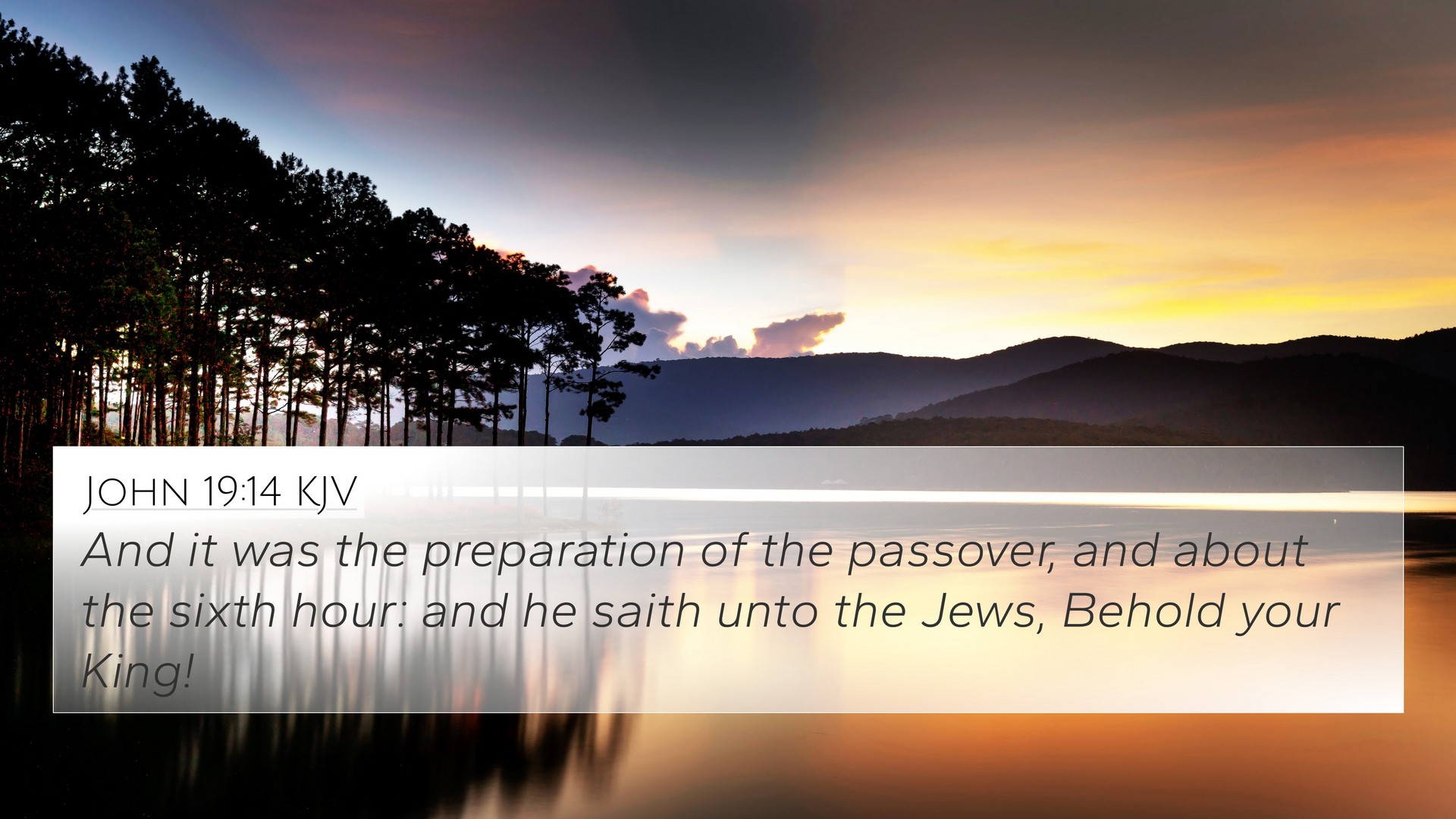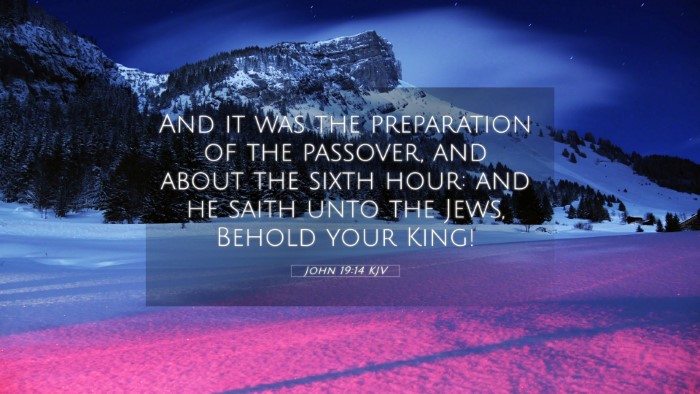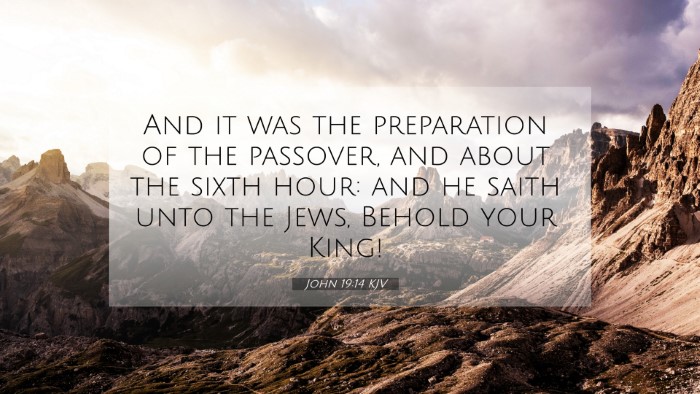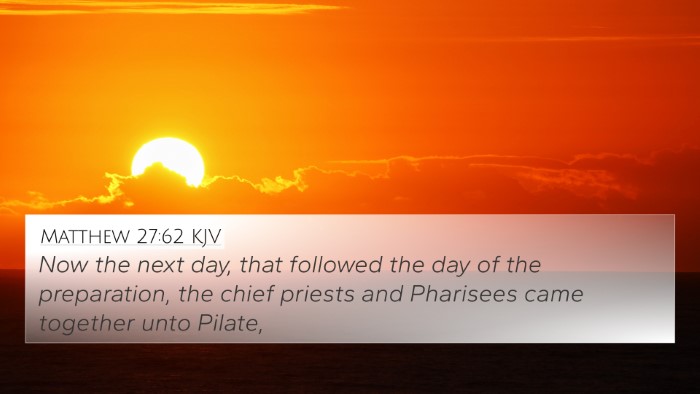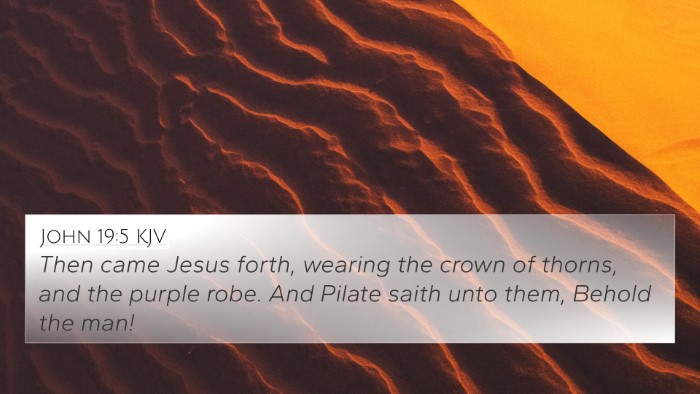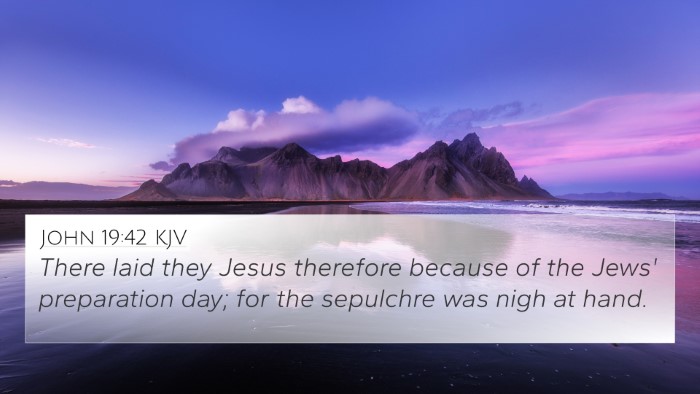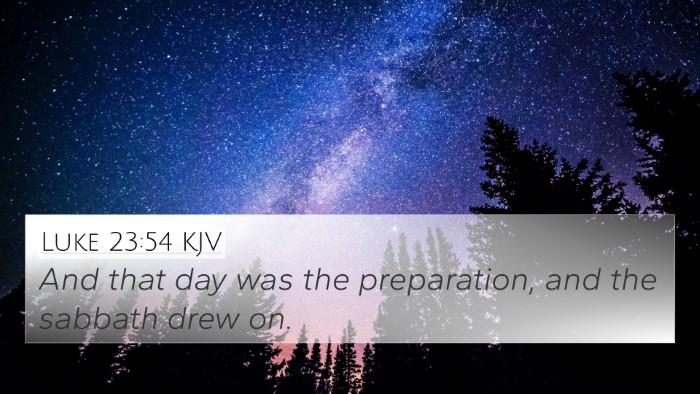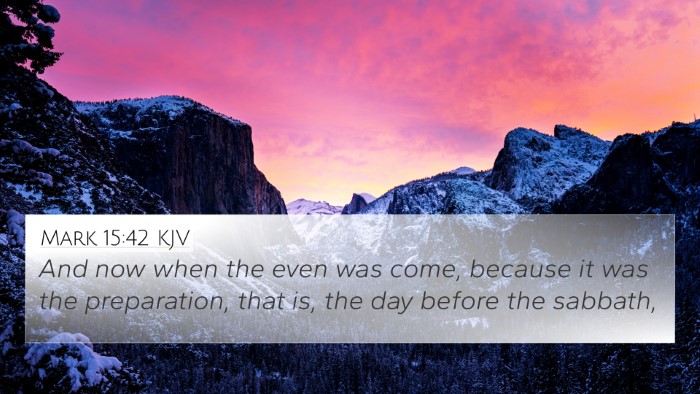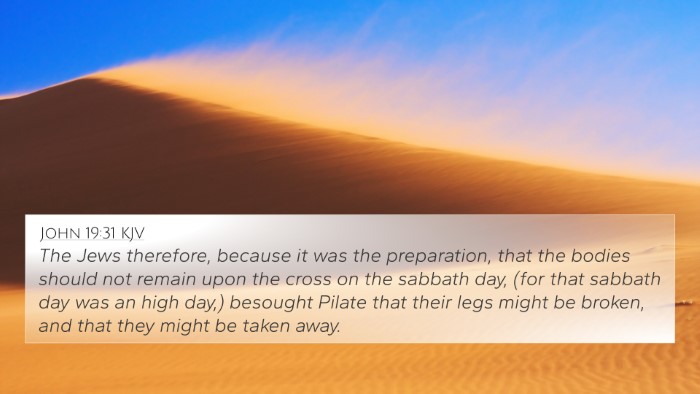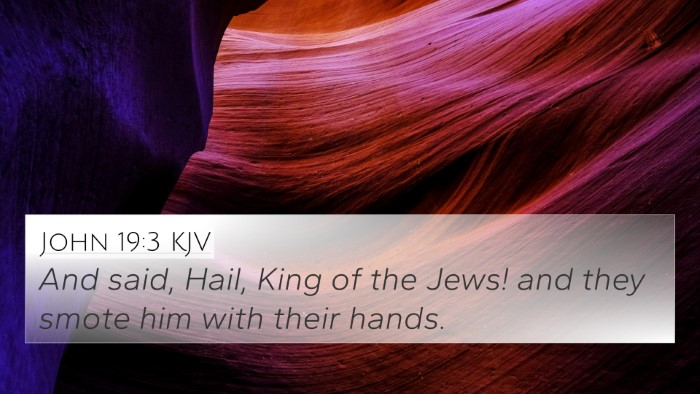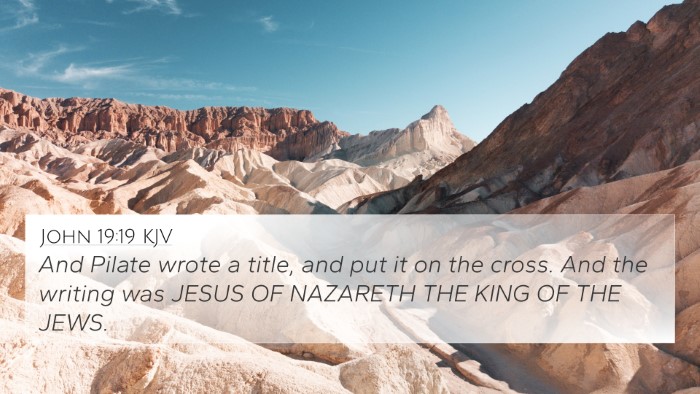Understanding John 19:14
John 19:14 records a pivotal moment in the narrative of Jesus' trial and crucifixion: “And it was the preparation of the Passover, and about the sixth hour: and he saith unto the Jews, Behold your King!” This verse encapsulates profound theological meaning and historical context which can be explored through various public domain commentaries. Below, we delve into the significance of this verse using insights from well-respected commentators.
Context and Setting
The setting in John 19:14 is critical for understanding the events leading up to the crucifixion. This moment occurs during the Passover, a significant festival in Jewish tradition symbolizing deliverance and freedom. Jesus' statement here foreshadows a deeper spiritual deliverance through His impending sacrifice.
Commentary Insights
Matthew Henry's Commentary
Henry emphasizes the timing of the events, noting that this was “the preparation of the Passover,” highlighting that Jesus' trial and condemnation coincided with the Jewish observance of this pivotal feast. He connects the significance of Jesus, who symbolizes the Paschal Lamb, with the idea that the true King was being rejected by His own people. This rejection furthers the prophecy of Isaiah 53, where the Messiah is portrayed as despised and rejected.
Albert Barnes' Notes
Barnes outlines the implications of the phrase "about the sixth hour," identifying the time frame as significant. In Jewish reckoning, this corresponds to approximately noon. Barnes discusses how this timing links to the broader narrative of Jesus presenting Himself during Passover when lambs were being sacrificed, thus symbolizing His role in God’s redemptive plan. He insists that this verse foreshadows the ultimate hour of redemption through Christ’s own sacrifice.
Adam Clarke's Commentary
Clarke delves into the expression "Behold your King!" suggesting that it carries the weight of irony. Here, Pilate presents Jesus, the King of the Jews, to a crowd that is blind to His true identity and purpose. Clarke emphasizes the juxtaposition between earthly power and divine kingship, revealing that the world's perception of authority often stands in stark contrast to God’s plan.
Key Themes and Connections
- Preparation for Sacrifice: This verse marks preparation, symbolizing Jesus as the ultimate sacrifice for humanity, linking to Exodus 12:6 where lambs were prepared for Passover.
- Rejection of Christ: The crowd’s shouts for crucifixion reflect Psalm 118:22, which speaks of the stone rejected by the builders, now the cornerstone of salvation.
- Identity of Jesus: The phrase “Behold your King!” corresponds with Isaiah 9:6, portraying the Messiah’s royal identity.
- Fulfillment of Prophecy: The insistence on His kingship during this moment intersects with Daniel 7:14, where the Messiah is given dominion and glory.
- Irony of Earthly Kingship: Pilate's proclamation contrasts with Luke 17:21, which states that the kingdom of God is within, pointing to a spiritual reign rather than a political one.
- Passover Significance: The reference to the Passover points to 1 Corinthians 5:7, where Christ is identified as our Passover lamb.
- Ultimate Sacrifice: Hebrews 9:26 links the necessity of repeated sacrifices to Christ's singular and ultimate sacrifice, underscoring the significance of this moment.
- Public Judgment: This public declaration can be linked with Matthew 27:22 where the crowd is given a choice, highlighting the gravity of their decision in rejecting their King.
- Covenant and Glory: John 1:11-12 reflects on Jesus coming to His own, and His own not receiving Him, tying into the prophetic expectations of the Messiah.
- Salvation Offer: This moment enhances the thematic connection to John 3:16, where God's offer of salvation through Jesus is available to all.
Cross-References for Deeper Study
To further understand John 19:14's implications, consider investigating the following cross-references:
- Exodus 12:6 - Preparation of lambs for Passover
- Psalm 118:22 - The stone the builders rejected
- Isaiah 9:6 - Prophecy of the coming Messiah
- Daniel 7:14 - The King given authority
- Luke 17:21 - The kingdom of God is within
- 1 Corinthians 5:7 - Christ as the Passover Lamb
- Hebrews 9:26 - Christ’s singular sacrifice
- Matthew 27:22 - The crowd’s choice of crucifixion
- John 1:11-12 - Jesus coming to His own
- John 3:16 - God’s gift of salvation
The Significance of Cross-Referencing
Understanding the connections between Bible verses enhances our comprehension of scripture as a cohesive narrative. By using tools for cross-referencing such as Bible concordances, we can uncover thematic links and deepen our biblical understanding. Using a cross-reference Bible study approach allows believers to see how various scripture passages interact, revealing God’s overarching plan for salvation through Christ.
Conclusion
John 19:14 is rich with meaning and invites the reader to engage deeply with the text. The relationship between Jesus' kingship, the Passover, and the rejection by His people is a poignant reminder of the events leading to the crucifixion. As one studies this verse alongside its cross-references, the theological implications become intensely impactful, illustrating the depth of God’s love and the significance of Christ's sacrifice.
